An Aberdeen maritime pilot is to receive the highest medal of honour after advocating for safety following his own life-changing injury.
Ewan Rattray was working as a pilot in Port of Aberdeen, guiding ships into the safety of the harbour, when he had his accident in 2018.
As he normally would, Mr Rattray went out in his boat to climb onto a moving ship using its boarding ladder.
He didn’t realise the arrangement wasn’t as it was supposed to be and his leg was crushed.
The 38-year-old, who now works as harbour master at Peterhead Port Authority, has been campaigning for pilot safety ever since.
And now, Mr Rattray has been unveiled as one of the 11 recipients to receive a Merchant Navy Medal, which he describes as a “great honour” and “humbling”.
Ewan Rattray’s career at sea and the accident
Having first gone to sea when he was 17, Mr Rattray has been in the maritime industry for over 20 years.
He initially worked on ships sailing around the world for 16 years before taking up a job as a pilot in Port of Aberdeen.
Maritime pilots know their area well, so they go out on a small boat to climb aboard other ships to help captains navigate their way into the harbour.
While Mr Rattray explained the job is normally safe, and it happens day-in and day-out across the UK, there is a risk involved.
On December 19, 2018 when he tried to board the MV Atlantic, he didn’t realise the arrangements weren’t as they were supposed to be until it was too late.
He was pulled onto the ship, and although he can’t recall most of what happened, he does remember being in “considerable pain”.
The crew called for the RNLI to help who managed to stabilise him onboard.
They then had to call for another pilot to help get them into the port so Mr Rattray could be taken to Aberdeen Royal Infirmary.
Long recovery and dealing with the ‘unknown’
While he was in the hospital, all manner of things were going through his head, including if he would ever be able to use his leg again.
Surgeons managed to put his foot back into place but had to wait for the swelling to go down before they could operate.
Metal plates were then put in his leg and he was put in a cast and used crutches for months after.
He’s had two more operations since and has physiotherapy sessions still, but says he will probably need another operation in the future.
“It still gives me pain,” he said. “I’m really grateful it wasn’t worse because it could have been a lot worse.
“But, it was always the unknown, when you get injured you think ‘I’m going to be fixed’ so to never be fixed was quite difficult to come to terms with.
“And the unknown with employment made it more difficult.”
As someone who doesn’t like to sit around, Mr Rattray was still on crutches and “hobbling around” between operations when he asked the port if there was anything he could do to help.
Although he couldn’t go back to piloting he was determined to get back to working for the industry he was so passionate about.
Luckily, an office-based position came up and he was able to move into that role about six months after the accident.
Even while he was still recovering, Mr Rattray was working towards his master’s in shipping operations which he completed in 2019.
It was during his studies that he gained all the research and data-gathering skills to look into improving safety standards for pilots across the world.
Research leads to the start of change in maritime industry
Mr Rattray explained pilots around the world all have ideas on how to make the industry safer and improve the regulations, but none of this was ever documented.
He realised there was an opportunity to make things better if he could gather them together in an article and have the data peer-reviewed.
Mr Rattray shared his findings with as many people as he could and his work is still referenced today.
During his research, he found that one of the key problems was how the regulations were split up over nine different documents, making it difficult to read and understand.
He was told it could take five to 10 years for regulations to change, but he was undeterred and the International Maritime Organisation has since agreed to look at changes, which he describes as a “huge step”.
“It’s a positive out of a negative situation,” he explained.
“I felt like I was doing something to fight back against this worldwide problem. Unfortunately, it’s quite common for boarding arrangements for pilots to be non-compliant which is dangerous.”
Throughout his research, he realised there was no support network for other pilots who had been injured – or who had a “scary near-miss”.
He wrote an article on the impact a career-ending journey has had on mental health, using athletes and soldiers because there was so little information about seafarers.
He added: “I’ve been asked to do some talks to get the word out to pilots that if they’re injured, or have a scary near miss, to just get out, talk to people and say it’s still playing on my mind.”
“If it’s quite bad, speak to someone, speak to a therapist, do some sessions and get back into the industry.”
Merchant Navy Medal is a ‘great honour’
Mr Rattray was sitting in his office when he received the email from the Department of Transport saying he was to receive the medal.
After initially thinking he had been nominated he reread the email and much to his surprise realised he had been successful.
He even had to ask a family member to double-check it for him.
Mr Rattray will be awarded the medal at a ceremony in London later in the year.
Although he took on the challenge and wanted to make a difference, he believes it was an “industry-wide” effort.
He said: “The maritime industry for me, never felt like a career it felt like a passion and something I’ve really enjoyed, something I’m really interested and invested in.
“To be awarded the Merchant Navy Medal is a great honour.
“Although I have done a small thing I’ve been recognised for which I’m exceptionally humble, there is a huge team of pilots and maritime professionals worldwide that work really really hard to make the job of a pilot safer.
“I’d like to also give them recognition for their hard work.”
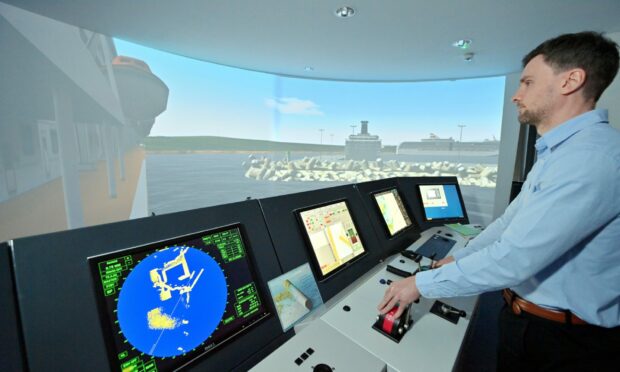
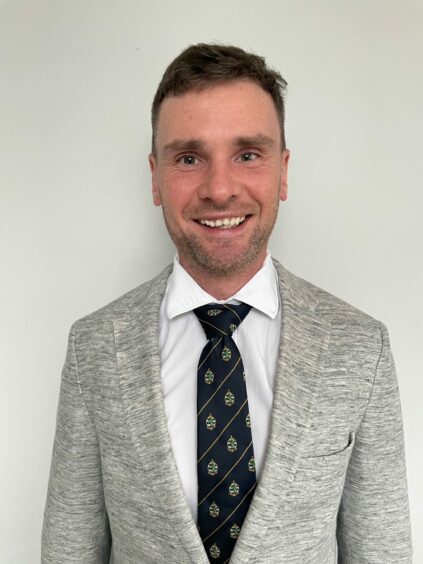
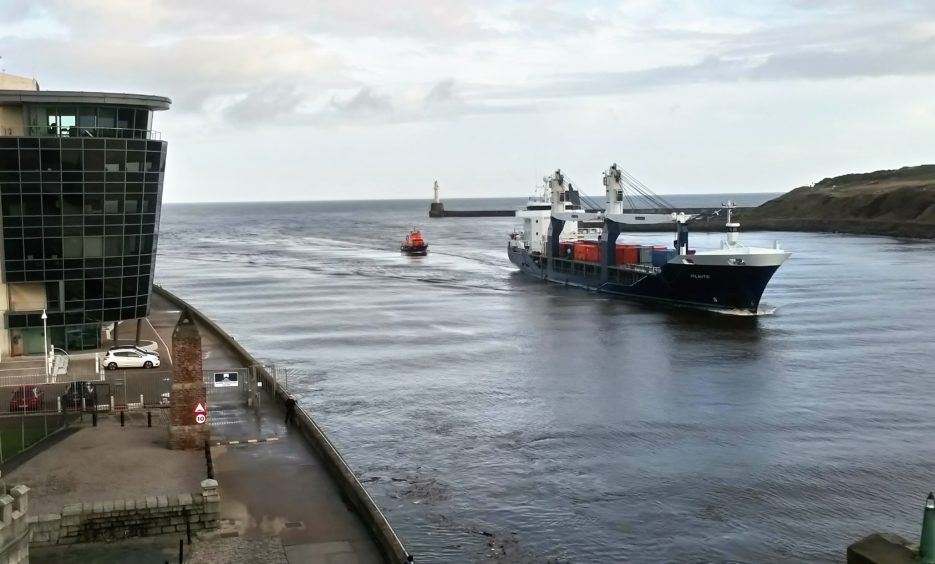
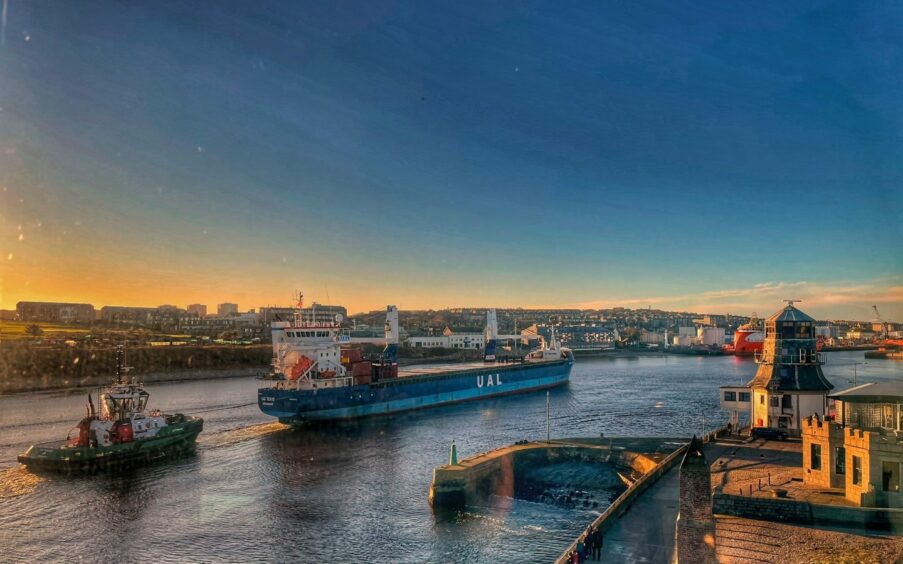
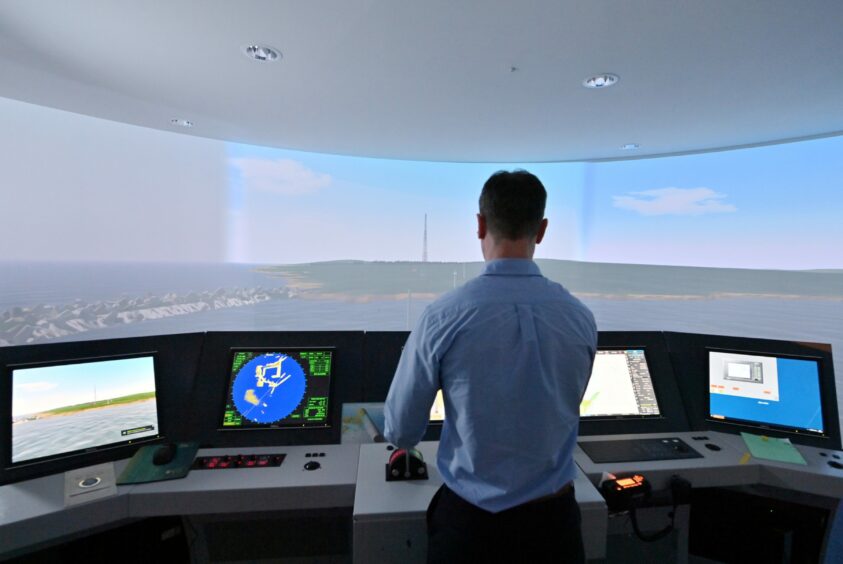
Conversation